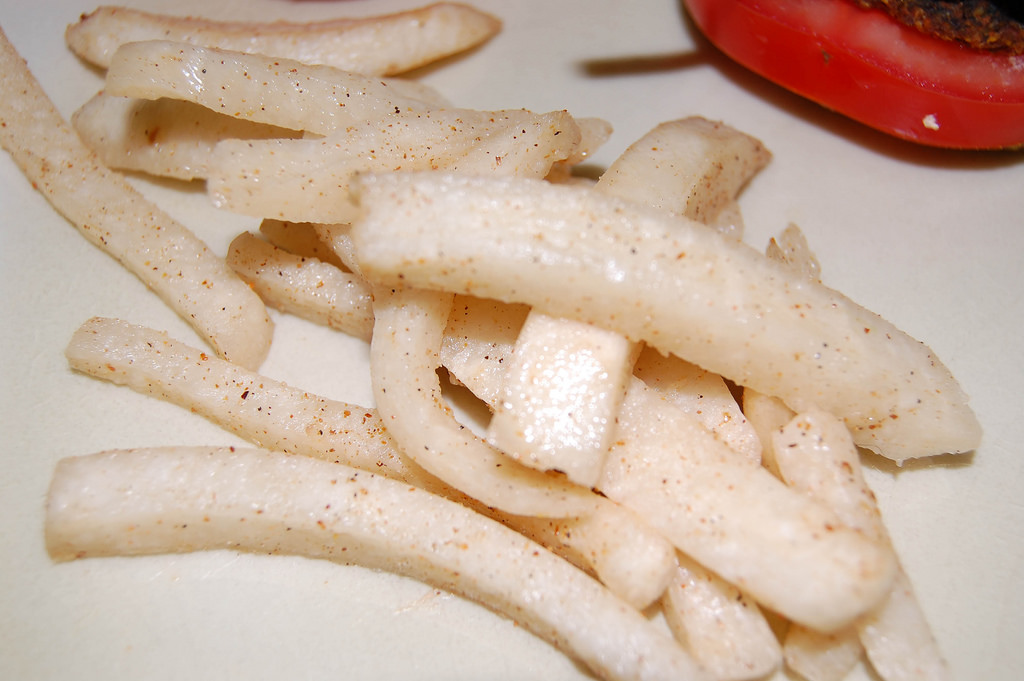Also known as Mexican turnip or Mexican yam, Jicama is a plant that mainly grows in central and South America. While the entire plant including the leaves, seeds, vines are called jicama, the only non-toxic edible part is the root. Natives of the region have known about jicama benefits for centuries and include it in their diet regularly. In addition to being a delicious food item, it is highly nutritious.
What Makes Jicama Beneficial?
Jicama may be called a treasure trove of vitamins and minerals. It also contains phytonutrients along with high amounts of fiber, proteins, and other organic elements that make it a wonder food. For instance, it contains minerals like iron, copper, manganese, magnesium, and potassium. Jicama is also rich in vitamins like C, E, and B6 in addition to folates and pantothenic acid.
Jicama Benefits for Your Health
Helps Manage Diabetes
Although sweet in taste, jicama is excellent for diabetics since it contains a oligofructose inulin, a kind of soluble fiber and inert carbohydrate that the body cannot convert into simple sugars. As a result, diabetics can safely eat it as a sweet to satisfy cravings without having to worry about elevated glucose levels.
Helps Manage Hypertension
The rich potassium content in jicama helps neutralize the effects of sodium and thus helps control high blood pressure. In addition, the vegetable acts to dilate the blood vessels to facilitate blood circulation. In this way, it lowers stress levels on the heart, arteries, and other blood vessels and helps you keep your hypertension in check.
Keeps Your Body Cells Oxygenated
Jicama contains iron and copper, both of which are essential for the creation of red blood cells. In addition, it contains vitamin C which helps the body absorb the iron content in your food. Patients that suffer from low hemoglobin and anemia can use jicama to maintain the proper functioning of their organs with an adequate supply of oxygen.
Promotes Digestion
By including jicama in your meals, you can add valuable fiber that adds bulk to your stool and prevents digestive problems. These issue like constipation ultimately leads to weight gain, piles, anal injuries, and other colonic conditions.
Promotes Weight Loss
Possibly one of the best jicama benefits is that it helps you lose weight. If you’re looking for the best low-calorie foods that can fill you up quickly, jicama should be high on your list. Eating 100 grams of the root will only add 35 calories to your allowance for the day making it easy to drop the pounds. The great taste makes it the perfect snack that is also highly nutritious.
Strengthens Your Bones
By including jicama regularly in your diet, you will be avoiding the possibility of osteoporosis, a condition where the bones weaken and become porous. The vegetable contains generous amounts of copper, iron, magnesium, and manganese all of which are used by the body to build new bone and the strengthen existing bones by raising their density levels.
Stimulates the Functioning of the Brain

Builds a Stronger Immune System
Just by consuming 100 grams of jicama each day, you can get 40% of your daily requirement of ascorbic acid, an important source of vitamin C. This vitamin fortifies the white blood cells in your body. And, helps it ward off infections caused by bacteria, fungi, viruses, and other pathogens. Vitamin C can also help eliminate the free radicals in the body that cause heart diseases and cancer.
Given the myriad jicama benefits, it’s easy to see why ancient Mexicans made it a part of their regular diet. Now, you can too.

